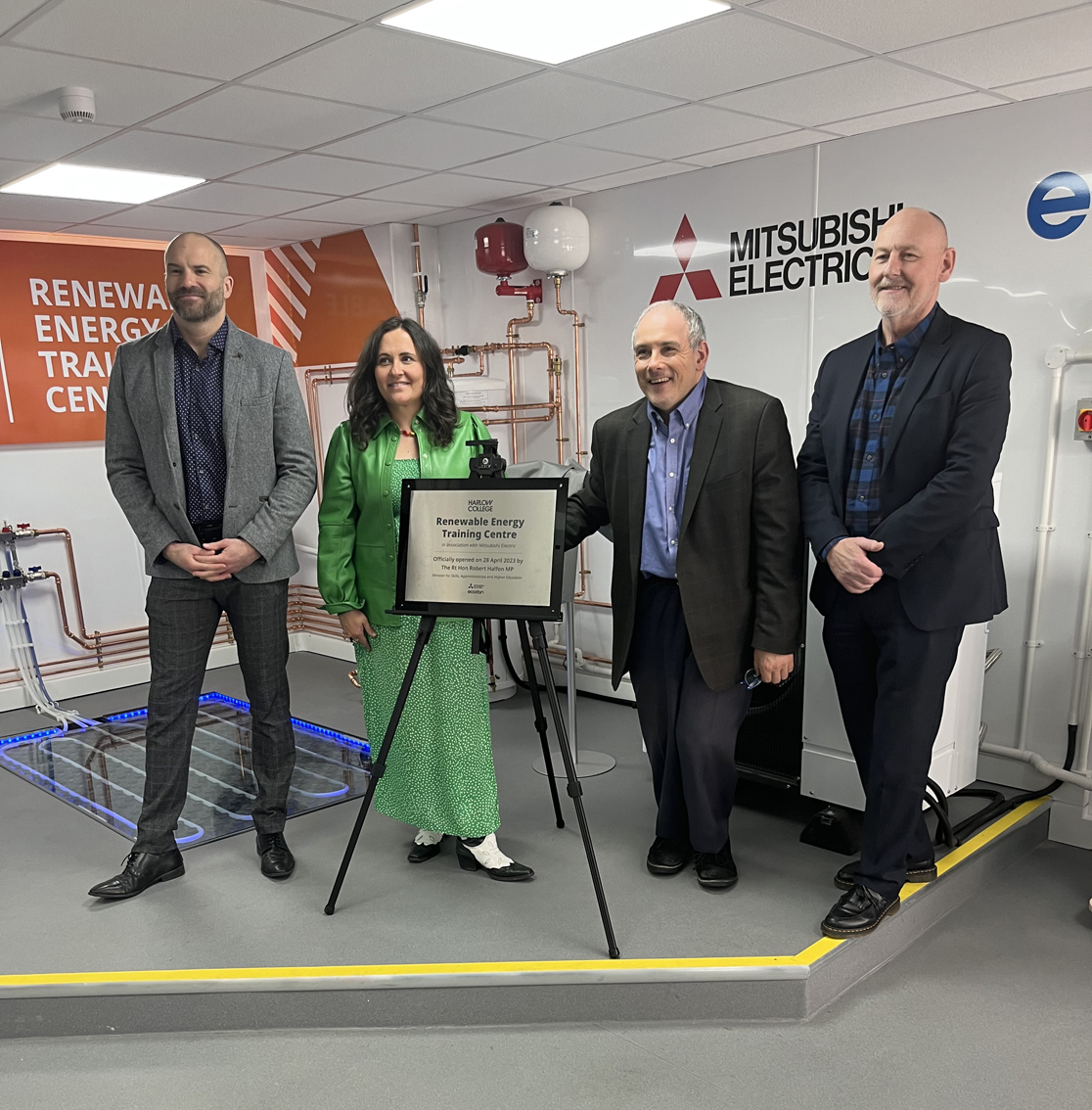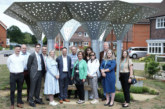Mitsubishi Electric discusses the skills gap and the need for more skilled installers to help transform the UK’s social housing and achieve Net Zero.
The pursuit of Net Zero has now taken a significant role in the UK’s priorities, as shown by the Government’s Build Back Greener Strategy, which outlines the crucial commitments, including for those in local authorities, to decarbonise the economy by 2050. The Government’s Ten Point Plan, which complements the strategy, equally recognises the significant role low carbon technologies play in driving this transition.
The challenge of decarbonising properties is particularly pertinent for social housing providers. Heating alone contributes to a substantial one third of the UK’s carbon emissions, making it a focal point for action — and this is a cost that local authorities can ill-afford to bear. Encouragingly, there is a growing awareness of this challenge, and the Government has set a target of installing 600,000 heat pumps annually by 2028.
Even still, there is a significant issue to address. The current heat pump installer market is notably lower than the demand for installations, and as the Government’s goal gains momentum — this gap will only grow. In fact, Nesta, the innovation agency for social good, found that there is a shortfall of 27,000 installers needed to reach the 2028 target. This scarcity affects property at every part of its lifecycle, from initial advisory work to ongoing maintenance.
This problem will require proactive measures to fix, for decarbonising the UK’s housing stock cannot be done without a skilled installer base. Local authorities and social housing providers have a pivotal role in supporting the training and development of the next generation of heat pump engineers.
Consumer and governmental urgency for change
The cost of home heating is front of mind for consumers, with recent research by Mitsubishi Electric with Ipsos showing that 55% of Britons want the cost-of-living crisis to be a priority on the Government’s agenda. Social housing providers will already be mindful of keeping extraneous costs down. One method that combats the issue, while also appealing to the rising eco-consciousness in households, is energy-efficient low carbon heating technologies — in particular, heat pumps and well insulated homes.
The Government is also pushing for more energy-efficient methods of home heating, as set out in the Future Homes Standard. Alongside this, the aforementioned target of reaching 600,000 heat pump installations per year by 2028 also shows how motivated the Government is to unlock the benefits of low carbon heating technologies.
However, it’s imperative to recognise that these demands from both residents and government can only be realised with a base of fully-trained heat pump installers — which the UK currently lacks. Meeting these targets will require a tenfold increase in the number of installations over the next five years. Neglecting to upskill the existing installer base poses the risk of both falling short of these objectives and alleviating the cost-of-living crisis.

Growing installer support
Bridging the current installer gap remains a substantial task, however, there are strong indications that installers support the transition to low carbon heating. In fact, over half (56%) of installers have expressed an interest in undergoing heat pump installation training in the next year.
The hesitance among the remaining installers is likely driven by several barriers, including age-related factors. Those nearing retirement may be less motivated to reskill for future employment. Also, misconceptions surrounding the hydrogen/heat pump debate may be contributing to resistance, as moving from gas to hydrogen boiler installations would require a lower amount of additional training.
Installers play a pivotal role in the development process, and social housing providers should recognise the influence of installers on communities. The research with Ipsos also found that 23% of consumers indicate they rely on installers for credible insights on heat pump technology. For social housing providers, it’s important that they partner with installers at an early stage, to help meet their overall aims to decarbonise housing developments — as well as sharing knowledge amongst residents.
Mitsubishi Electric has invested and increased the training it offers and, with Harlow College has supported the company in opening its ‘Renewable Energy Training Centre’. Centres such as this aim to prepare young people to meet the Government’s targets on energy efficiency, and future-proof the skills of these professionals in today’s changing landscape.
Investment and training
Investment in heat pump training is crucial. This includes strategies that encourage enterprises to trial heat pump training programmes across the UK, alongside providing modular qualifications for on-the-job training. Equally significant is facilitating accessibility to these courses for engineers, plumbers, and gas installers.
What’s more, the industry should focus on raising tradespeople knowledge not only about the overarching benefits of heat pumps, but also about the specific benefits of enhancing their skills in this domain. This approach empowers installers to offer impartial and accurate guidance to specifiers looking to incorporate heat pumps into their projects.
The shortage of skilled professionals capable of installing low carbon heating technology — like air source heat pumps — is an industry wide problem. To align with the Government’s ambitious decarbonisation objectives, a knowledgeable and motivated installer base is essential. With them, social housing providers will be able to implement energy-efficient heating initiatives into their projects — reducing their carbon emissions and, crucially, cutting costs for those they are housing.
Click the link to check out the Upskill to Ecodan video.
To read the full Ipsos/Mitsubishi Electric study on the Future of home heating in Britain click here.
Header image: Training on heat pumps at Mitsubishi Electric training centre.










